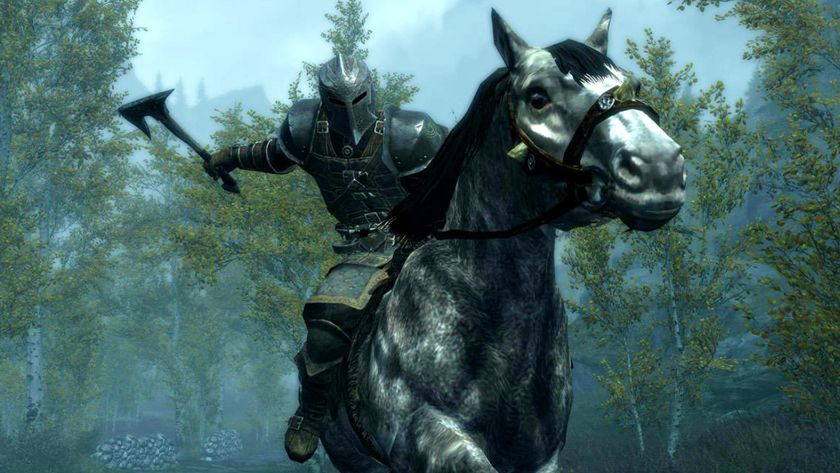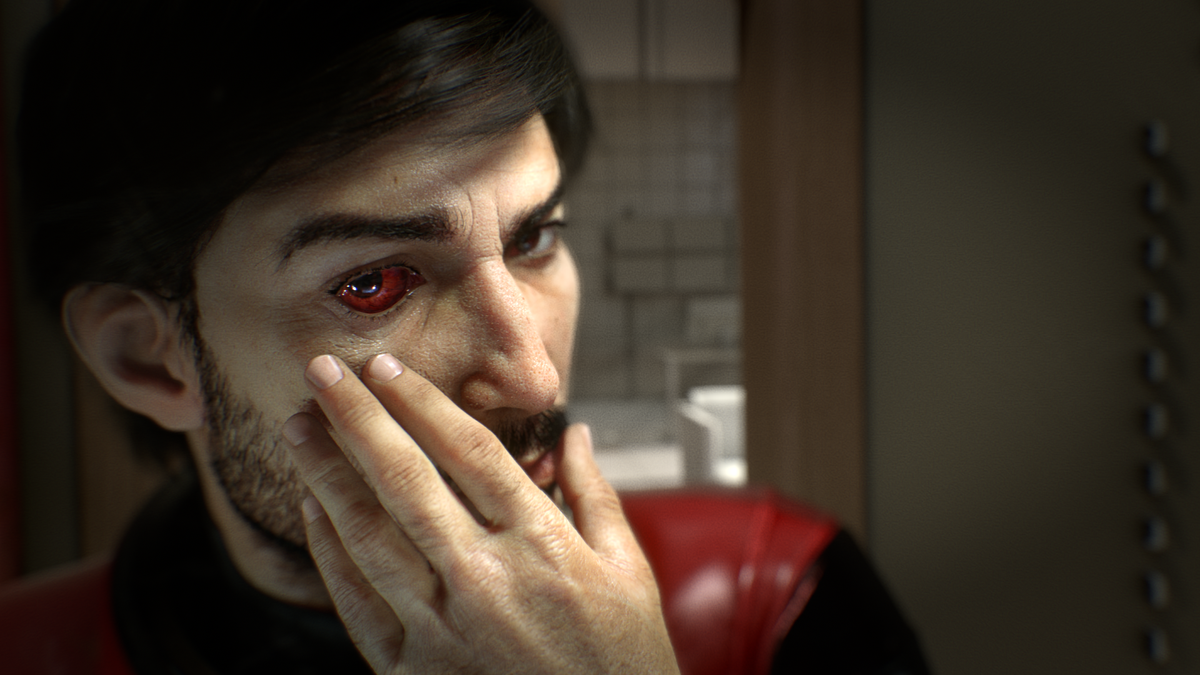
"Fallout meets Dishonored is a shortcut." Raphael Colantonio, co-founder of immersive sim developer Arkane and now his second studio, WolfEye, clearly understands the value of a hook. But after 2022's Weird West, the studio's second game - a dense, open-world immersive sim with strong RPG elements, set in an alternative version of the American Old West - doesn't necessarily sit happily on that hook. In the week since its reveal, Colantonio has tried to describe a spectrum upon which his game does sit. Fallout: New Vegas sits at one end of that spectrum, with a more 'pure' immersive sim like Dishonored at the other. But to understand how WolfEye's new game exists on this spectrum, we need to look back more than two decades.
One of the first things that jumps out to me as Colantonio describes his new game is the ambition behind it. A dense, first-person immersive sim feels like a daunting prospect for a sophomore studio, but when I put that to him, he shrugs it off: "We had exactly the same on Arx Fatalis," he says, pointing to Arkane's 2002 debut. "We were an even smaller team, nine people. The difference here is when you commit to doing these things, you also commit to a certain level of execution. The higher the level of execution, the more time, the more daunting it is."
Clearly, for a studio with its history in immersive sims, sacrifices are unlikely to be made in gameplay detail. For Colantonio, there's an obvious place to make some efficiency savings: "Are you going for ultra-realism, which takes forever and ages really rapidly, or are you going for stylized which gives you a little bit of a shortcut from a production standpoint and also ages gracefully? You look at some old Zelda, and it's still cute. But there are some other games where they were trying to be realistic, and back then it was probably visually stunning. And now it's like you can't even look at it."
An honorable legacy
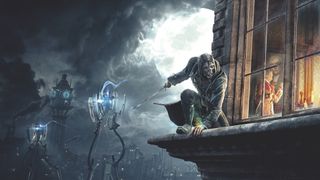
Stylization, he thinks, is what's helped Dishonored hold up so well. "I do think Dishonored is still pretty," Colantonio says."You still see exactly what you wanted to see back then. The big picture, the bit that really communicates the emotional quality of the visuals is still there." Arguably, Dishonored remains Colantonio's greatest success. A critical darling that spawned multiple subsequent entries, it's also a quintessential example of an idea that Colantonio returns to repeatedly: Arkane DNA. Dishonored was "the most popular game that showcased that DNA." But does that actually mean?
"There's a foundation on simulation," he explains. "In every way, our systems, our world design. We don't make levels that are just a facade for the players to be funneled into. Instead, we simulate an environment." Key to that is establishing how a real space would work - you might not be able to walk straight through the front door, but you could certainly Blink up to an open window. Every NPC can be killed, their body looted, and that loot could turn up an item that the player wasn't necessarily supposed to see. "We make it so that the players can go and transgress, that's part of the simulation. There's always this layer of what we don't show, but is still there so that the players can express themselves in ways that are unexpected and will feel incredible."
Immersion, breaking
That's a design philosophy that Colantonio has started to see beyond the traditional immersive sim. You might think that would confound that design spectrum, but it actually helps shape it. Skyrim, he says, has strong immersive sim qualities, and so does Baldur's Gate 3: "There's very little filler," Colantonio points out. "It's all areas that you can visit, there's always a reason for every place to be the way it is. I think that's a value that Larian shares with us." He tells a story of his time in Baldur's Gate 3, where he snuck around a fight rather than engaging with it head-on: "I cheated the game with legit, legal systems, and it felt amazing. And that's exactly the kind of thing that we've done in all the games that I've directed before, and that we're going to do here. Give all those tools to the players and if they find some sort of smart way to cheat the game, perfect. Let them do that."
The idea of handing more tools to the player brings Colantonio to Prey, a game he describes as "the most open stuff I've ever directed." Prey offered the player tools that weren't available in Dishonored, creating a game that was "much more RPG" than its predecessor. But if Prey was once the most open game he'd ever created, this new game threatens to blow that out of the water.
Sign up to the 12DOVE Newsletter
Weekly digests, tales from the communities you love, and more
"I'm going one step further," he teases. "Not only in the world structure, but also in the amount of tools that we give to the player. Prey gave more tools than Dishonored, but in this one we're going to give even more tools. Things that are more RPG: Stats, dialogue, dialog based not only on stats like Speech, but also on the things you might have done, or your background, or some trait or perk you might have unlocked."
The immersive sim clearly remains, thanks in no small part to WolfEye's choice of setting. "We really love to have a story for every character," Colantonio says. "If you make an RPG in New York, then you're kind of screwed, because now you have millions of people to detail. We prefer a world where there's not that many characters, not that many locations, but every one of them has a story." That philosophy - as well as Colontanio's love of Fallout: New Vegas - helped draw WolfEye to the Old West, first for its debut, Weird West, and now for its follow-up. "We like the simplicity and the tropes of worlds like a Western. There's something that's very simple about those worlds, but people understand them. It's smaller pockets of people, it's a little lawless, and that's perfect grounds for storytelling and freedom for the players."
Family Tree
There are new influences, but it's clear that Colantonio sees WolfEye and the work it's doing now as a natural extension of the games he made at Arkane. 'Arkane DNA' "was built over 20 years," but that doesn't mean that it only belongs to that one studio. "There's been a few companies that have made some significant games in the history of games, and then spawn a culture of other games or other companies that share that DNA." Looking back to New Vegas, he points out how "Obsidian comes from Black Isle, and Black Isle also led to InXile. All these companies share the same DNA." WolfEye is a branch from the Arkane tree, executive producer Julien Roby chimes in: "we don't want to appropriate, obviously, but we are a branch coming from the same legacy."
In the wake of Arkane Austin's abrupt closure following the failure of Redfall - a very different game but one that still showed flashes of that DNA - the legacy of Colantanio's first company is more complicated than it was when he left it. Nevertheless, he says Arkane remains "my first baby. I'll wish them the best forever. We're still friends with the people there. Now it's theirs to do whatever they want with it. But I'm still interested in it." There's a feeling that Colantonio doesn't just see Arkane and WolfEye as distant cousins sharing one common ancestor, but as family: " We're a lot of former people from Arkane. If you look at it in 1999, a lot of the people that were there are now with WolfEye. We're brothers."
On the other side of the spectrum, Fallout: New Vegas director Josh Sawyer has been reflecting on his RPG.

I'm GamesRadar's news editor, working with the team to deliver breaking news from across the industry. I started my journalistic career while getting my degree in English Literature at the University of Warwick, where I also worked as Games Editor on the student newspaper, The Boar. Since then, I've run the news sections at PCGamesN and Kotaku UK, and also regularly contributed to PC Gamer. As you might be able to tell, PC is my platform of choice, so you can regularly find me playing League of Legends or Steam's latest indie hit.
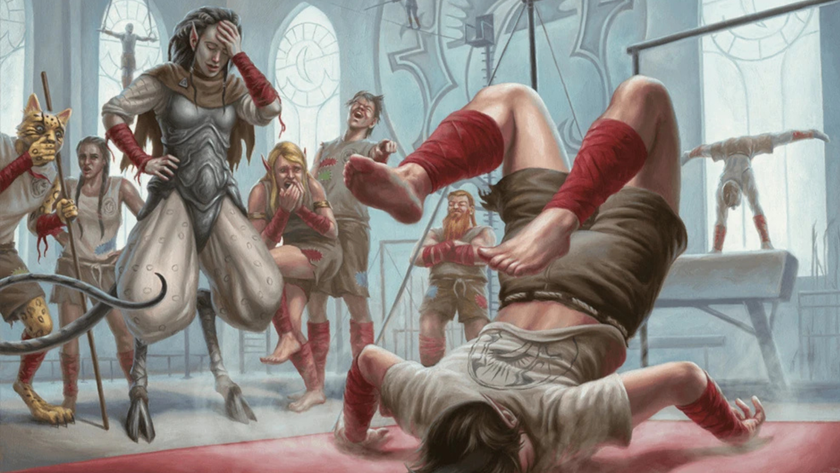
The Baldur's Gate 3-themed Stardew Valley mod that Larian boss Swen Vincke called "amazing" gets DMCA'd by D&D publisher Wizards of the Coast
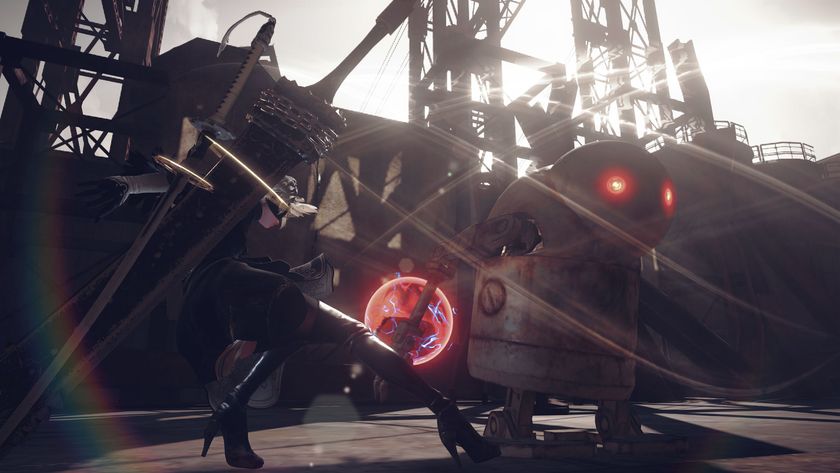
After PlayStation boss praises Nier Automata as a savior for Japanese games overseas, Yoko Taro says he was specifically told to focus on Japan because it wouldn't fly overseas
